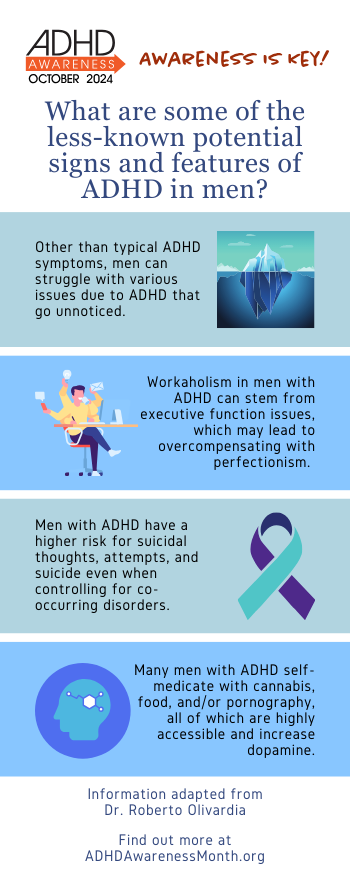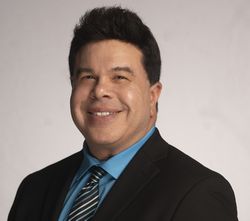Other than typical ADHD symptoms, men can struggle with various issues that, due to ADHD, go unnoticed. These include workaholism, perfectionism, suicidal thoughts, and dependencies on cannabis, pornography, and/or food.

Workaholism can sometimes be a result of executive function issues, like time management and procrastination, leading people to work longer hours than usual. It can also be due to the high level of stimulation work provides, leading to hyperfocus, to the exclusion of other important things.
Many men with ADHD overcompensate with perfectionism, in an attempt to prevent the careless or impulsive errors made in the past. Perfectionism can also be a way of conserving executive energy by doing things “perfectly” the first time around. It actually proves to be inefficient in the long run.
Studies show that men with ADHD have a higher risk for suicidal thoughts, attempts, and suicide. This is true even after controlling for comorbid disorders, like depression and anxiety.
ADHD also shows to carry an additive risk for suicide for men who have depression, schizophrenia, bipolar disorder and substance dependence problems.
The Interpersonal-Psychological Theory of Suicidal Behavior includes three main factors associated with suicide risk: thwarted belongingness, perceived burdensomeness, and an acquired ability to enact lethal self-injury.
Men with ADHD are at higher risk for experiencing each of these three factors. Lastly, many men with ADHD self-medicate with cannabis, pornography, and/or food, all of which are highly accessible and stimulate dopaminergic reward centers in the brain. These particular behaviors often exist under the radar and are erroneously not publicly connected with ADHD.
About the Author

Dr. Roberto Olivardia is a Clinical Psychologist and Lecturer in the Department of Psychiatry at Harvard Medical School. He sits on the Professional Advisory Boards for CHADD and ADDA.
